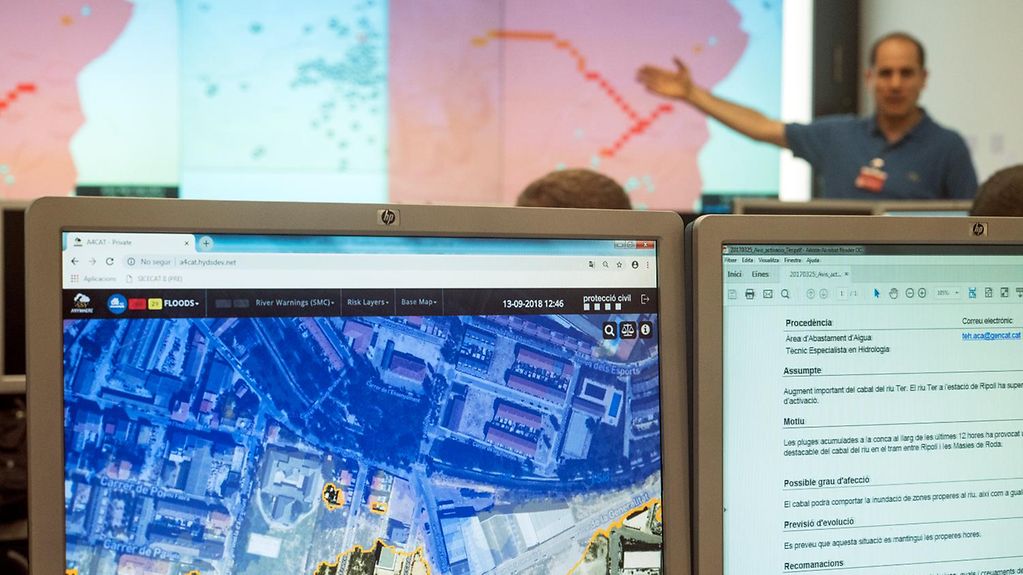EU on the ground: Anywhere early warning system
Floods, forest fires and tornadoes – extreme weather events are happening more and more frequently across Europe too. The EU’s Anywhere project is working on an early warning system to increase capacities to respond more quickly and more effectively to emergencies.
3 min reading time

Scientists are cooperating across Europe to more accurately predict extreme weather events
Photo: ANYWHERE Projektkonsortium
The Anywhere project was launched in 2016. The name says it all: climate disasters can happen anywhere, at any time. This EU-wide network of data, research and know-how aims to contribute to better predicting disasters of all kinds in order to be able to reduce or, wherever possible, to prevent devastating consequences for the environment and population.
Anywhere therefore proposes implementing a pan-European multi-hazard platform. This platform will collate information across borders about possible threats. Then it will act as an early warning system and a key decision-making tool for the authorities. It will, not least, help improve response times for rescue teams or when it comes to taking preventive measures.
Weather knows no borders
One of the German project partners is the University of Paderborn and its affiliated Heinz Nixdorf Institute. Dr Jens Pottebaum from the Faculty of Mechanical Engineering emphasises the value added such a programme has for research: “The European level is very important here. Of course, this kind of project could also be organised at the national level and would even create real added value. But in the long run this is an issue which simply knows no borders and where we can derive the biggest benefit from our European community.”
Most of the project partners have already had lead responsibility in precursor projects. They now feel that this cross-border cooperation offers the chance to work together to find solutions and draw together results and methods.
Improved forecasts
It is not only in the field of research that the Anywhere project has already achieved significant outcomes: fire brigades, regional and national disaster management authorities, meteorological services and industrial enterprises are already applying its project outcomes for the good of society. Looking at various extreme weather events in context as well as their possible interdependencies in particular helps to improve early warning systems and that, in turn, also contributes immensely to raising the self-preparedness of the population.
Research to improve safety to continue
EU funding for this collaborative project ends in December 2019. That does not, however, mean that research in this important field will simply come to an end. First, the research results achieved over the past four years can then be applied to new products and thus achieve an even wider impact. Second, each of the project partners will continue to do research in this area and attempt to maintain existing collaborations.
Researchers at the University of Paderborn want to find ways to integrate the project outcomes into intelligent technical systems such as navigation and driver assistance systems. Dr Pottebaum believes this combination of technical, mechatronic and information systems will contribute to improving safety in many areas as well as focus our minds on the future.
Supporting cutting-edge European research
Anywhere is funded within the EU’s Horizon 2020 programme. Launched by the European Commission to support cutting-edge European research, the programme will be providing a total of 80 million euros to cross-border projects in the period 2014 to 2020. Aimed at creating future-proof jobs, the projects range from basic research to developing prototypes and marketable services.